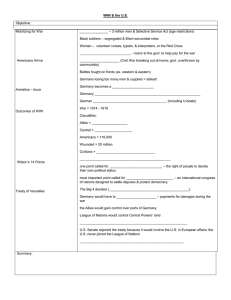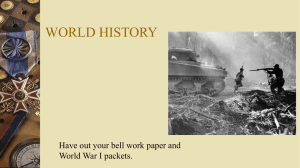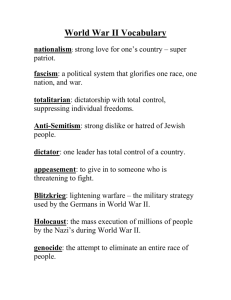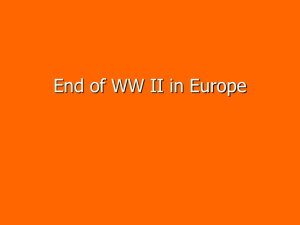AP World History
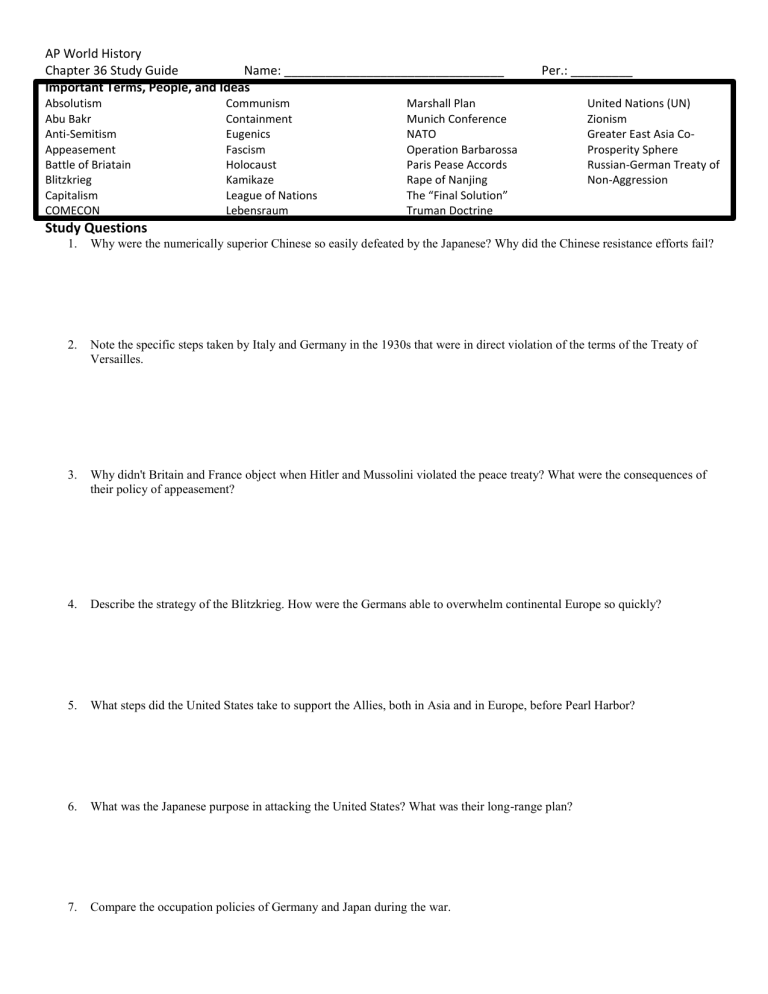
AP World History
Chapter 36 Study Guide Name: ________________________________ Per.: _________
Important Terms, People, and Ideas
Absolutism
Abu Bakr
Anti-Semitism
Appeasement
Battle of Briatain
Blitzkrieg
Capitalism
COMECON
Study Questions
Communism
Containment
Eugenics
Fascism
Holocaust
Kamikaze
League of Nations
Lebensraum
Marshall Plan
Munich Conference
NATO
Operation Barbarossa
Paris Pease Accords
Rape of Nanjing
The “Final Solution”
Truman Doctrine
United Nations (UN)
Zionism
Greater East Asia Co-
Prosperity Sphere
Russian-German Treaty of
Non-Aggression
1.
Why were the numerically superior Chinese so easily defeated by the Japanese? Why did the Chinese resistance efforts fail?
2.
Note the specific steps taken by Italy and Germany in the 1930s that were in direct violation of the terms of the Treaty of
Versailles.
3.
Why didn't Britain and France object when Hitler and Mussolini violated the peace treaty? What were the consequences of their policy of appeasement?
4.
Describe the strategy of the Blitzkrieg. How were the Germans able to overwhelm continental Europe so quickly?
5.
What steps did the United States take to support the Allies, both in Asia and in Europe, before Pearl Harbor?
6.
What was the Japanese purpose in attacking the United States? What was their long-range plan?
7.
Compare the occupation policies of Germany and Japan during the war.
AP World History
Chapter 36 Study Guide Name: ________________________________ Per.: _________
8.
What factors led to the defeat of the Axis powers in Europe?
9.
What were some of the forms of resistance to occupying forces? How effective were these efforts? Why was resistance so difficult?
10.
How did the war affect civilian populations, families, and women on the home front?
Inquiry Questions
11.
What factors led to the American decision to drop the atomic bomb on Hiroshima and Nagasaki? What were the results of this decision, both long- and short-term?
12.
How did Nazi policies toward the Jews change over the course of the war? What does the statement by Heinrich Himmler reveal about Nazi attitudes toward the extermination of the Jewish people?
13.
How did U.S.-Soviet relations change over the course of the war, from the lend-lease program in 1941 to the Potsdam
Conference in 1945? What were the sources of tensions between the two allies?
